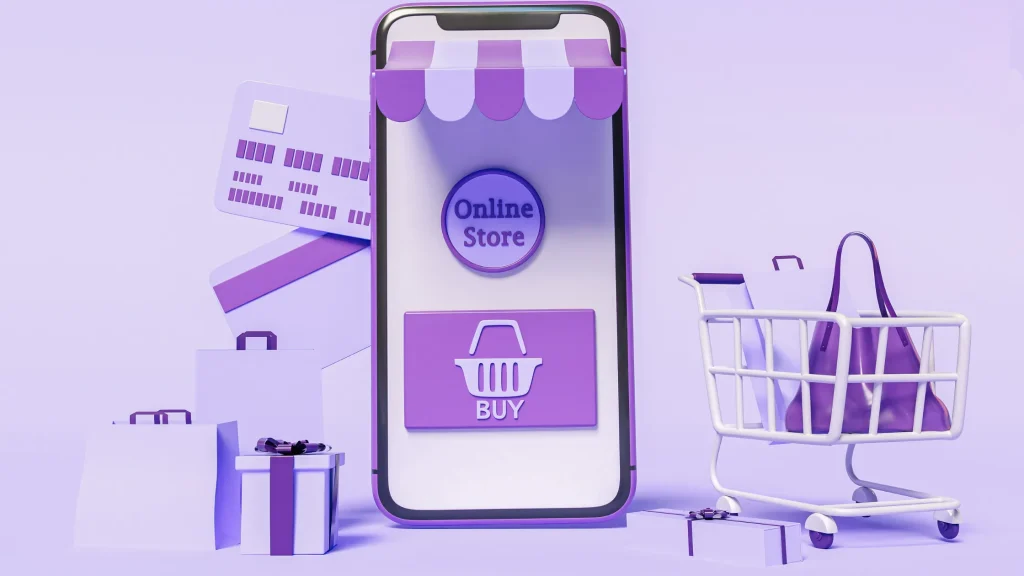In the fast-paced world of ecommerce, staying connected with customers is more important than ever. Email marketing is a powerful tool. It helps build relationships, drive conversions, and increase revenue for online businesses. The right strategy can make email campaigns drive explosive growth. They reach customers with the right message at just the right moment.
Whether you’re a small online shop or a large ecommerce brand, email marketing can help you reach your audience, build loyalty, and increase sales. This article dives deep into the best practices, types of emails, and automation strategies that can take your ecommerce business to the next level.
The Power of Email Marketing for Ecommerce Businesses
The Power of Email Marketing for Online Businesses
Email marketing is one of the most effective tools for ecommerce businesses aiming to grow and connect with customers. Ecommerce businesses need to use email campaigns. This helps boost engagement and increase sales in today’s digital marketing world. With the right strategy, email marketing can be a powerful channel that drives repeat business and enhances customer loyalty.
Why Ecommerce Businesses Need Email Marketing
Ecommerce businesses thrive on customer relationships. Email marketing connects you directly with your audience. This is key for promoting products, services, and special offers. Ecommerce businesses can create trust and long-term success through smart email marketing. Personalized campaigns help build strong connections with customers.
Building a Strong Ecommerce Email Marketing Strategy

Key Elements of an Effective Email Marketing Strategy
A solid email marketing strategy is essential for the success of any ecommerce business. When planning an email campaign, consider the type of emails you’ll send and the specific goals you want to achieve. A good marketing strategy helps you boost sales, promote new products, and recover abandoned carts. It guides your efforts for better overall performance.
Understanding Your Audience for Better Engagement
To maximize the effectiveness of an email campaign, it’s important to understand your audience. Segment your email list based on customer behavior, purchase history, and preferences. This allows you to send highly targeted messages that resonate with your subscribers, increasing your open rates and boosting conversions.
Setting Clear Goals for Your Email Campaigns
Clear goals are crucial when creating an email marketing strategy. To grow your email list, promote products, or recover lost sales, set clear goals. Measurable objectives help you track progress and improve your campaigns. Align your strategy with your ecommerce business goals to unlock explosive growth.
Types of Emails That Drive Results in Ecommerce
Welcome Emails: Building First Impressions
The first email a customer receives sets the tone for your relationship. A welcome email is an excellent opportunity to make a lasting first impression. Personalize this email by thanking the subscriber for joining your list and offering an exclusive discount or promotion to encourage their first purchase. A well-crafted welcome email establishes trust and builds a foundation for future communication.
Abandoned Cart Emails: Recovering Lost Sales
Abandoned cart emails are one of the most powerful types of emails for ecommerce businesses. An abandoned cart email can remind customers about items they left in their shopping cart. This email can have a discount code or special offer. It encourages customers to complete their purchase, helping recover lost revenue.
Promotional and Discount Emails: Boosting Conversions
Promotional emails that offer discounts, sales, or special deals are essential for encouraging conversions. Targeted email campaigns help ecommerce businesses boost sales and draw in repeat customers. These emails should include clear calls to action (CTAs), creating a sense of urgency and encouraging recipients to act quickly.
Re-engagement Emails: Winning Back Inactive Customers
Re-engagement emails are crucial for reaching out to customers who haven’t interacted with your ecommerce business in a while. Offering a discount or a personalized message can rekindle their interest and bring them back to your store. This type of email can re-establish connections with your audience, resulting in increased retention and sales.
Best Practices for Ecommerce Email Marketing Campaigns

Crafting Compelling Subject Lines for High Open Rates
The subject line is what subscribers see first in an email. It’s key to whether they will open it. A compelling subject line that piques curiosity or offers value is essential for improving open rates. Keep it short, relevant, and personalized to increase the likelihood of recipients opening the email.
Personalization: Tailoring Emails for Increased Relevance
Personalized emails are more likely to grab attention and engage recipients. Use customer data, such as their name, purchase history, or browsing behavior, to send relevant content. This creates a more meaningful connection and boosts the effectiveness of your email campaigns. By delivering tailored content, you increase the chances of conversions and repeat business.
Mobile Optimization: Ensuring Accessibility Across Devices
With an increasing number of people checking their emails on mobile devices, it’s essential to optimize your emails for mobile. Ensure your email designs are responsive and easy to read on smaller screens. This includes using large buttons, concise content, and simple layouts that load quickly. A mobile-optimized email improves the user experience and increases the likelihood of conversions.
A/B Testing: Optimizing Your Email Campaigns for Success
A/B testing is a best practice in email marketing that involves testing different elements of an email campaign to determine what works best. This can include testing subject lines, CTAs, images, and even the timing of the email. Ecommerce businesses can improve their email campaigns by analyzing test results. This helps boost performance over time.
Leveraging Email Marketing Automation for Ecommerce Growth
What is Email Marketing Automation?
Email marketing automation means using software to send emails automatically. This happens based on certain triggers or actions. This can include sending a welcome email when someone subscribes, an abandoned cart email when a customer leaves items in their cart, or a post-purchase email to thank customers and encourage repeat business. Automation saves time and ensures timely, relevant communication with customers.
Setting Up Automated Email Series for Better Engagement
Automated email series can guide customers through their journey with your ecommerce business. After a customer buys something, you can send a follow-up email series. This can include a thank-you note, product suggestions, and a request for a product review. These automated workflows nurture customer relationships and encourage future purchases.
Automating Abandoned Cart Emails to Recover Sales
One of the most successful ways to use email marketing automation is by sending abandoned cart emails. You can set up automated workflows. This way, customers get a reminder email with a special offer after they leave items in their cart. This strategy helps recover lost sales and drives revenue.
Automating Post-Purchase Emails for Increased Customer Loyalty
After a customer makes a purchase, sending a timely post-purchase email can enhance their experience and encourage repeat business. These emails can include product recommendations, feedback requests, or loyalty program invitations. Automation ensures these messages are sent consistently and promptly, helping you build customer loyalty over time.
Selecting the Best Email Marketing Software for Ecommerce

Top Email Marketing Tools for Ecommerce Businesses
The right email software can make or break your email marketing strategy. Popular email marketing tools for ecommerce businesses include Mailchimp, Klaviyo, and ActiveCampaign. These platforms offer a wide range of features, including email automation, segmentation, and detailed analytics, to help you manage and optimize your campaigns.
Key Features to Look for in Ecommerce Email Marketing Software
When choosing email marketing software, look for features that align with your business needs. These features include automation, segmentation tools, A/B testing, and analytics. They help you track your campaign performance. The software must easily connect with your ecommerce platform. This makes managing your email lists and campaigns simple.
Comparing the Best Email Marketing Automation Tools for Ecommerce
Ecommerce businesses should choose email marketing software that offers powerful automation tools. Compare platforms based on features such as trigger-based email sending, customizable workflows, and detailed customer segmentation. The top email marketing automation tools can make your work easier. They save time and boost the success of your campaigns.
Successful Ecommerce Email Campaign Examples
Effective E-commerce Email Campaign Strategies
Successful ecommerce email campaigns are built on sound strategies. By segmenting your email list and sending targeted messages, businesses can increase customer engagement and drive conversions. A retail business might run a seasonal email campaign for holiday sales. Meanwhile, a subscription-based business may focus on keeping its customers.
Case Studies: Ecommerce Brands That Have Mastered Email Marketing
Several ecommerce brands have mastered the art of email marketing. For example, ASOS sends personalized emails to suggest items from a customer’s browsing history. Glossier offers tailored recommendations based on what customers have bought. These brands use email marketing to connect with customers and boost growth.
Real-World Examples of Email Campaigns That Drove Sales
Real-world examples highlight the effectiveness of email marketing in driving sales. A recent campaign from a popular online retailer sent out abandoned cart emails. This led to a big boost in conversions. Similarly, a post-purchase email series with product recommendations led to higher customer lifetime value for a skincare brand.
Advanced Ecommerce Email Marketing Strategies
Segmenting Your Email List for Targeted Campaigns
Segmentation is a powerful strategy for ecommerce businesses. By dividing your email list into smaller segments based on customer behavior, preferences, or demographics, you can send more relevant and personalized emails. This increases the likelihood of customer engagement and boosts conversion rates.
Using Behavioral Triggers to Enhance Email Campaigns
Behavioral triggers are actions that prompt an automated email to be sent. For example, if a customer views a product but doesn’t make a purchase, an email marketing tool can send a reminder email with a special offer. Behavioral email triggers are highly effective in re-engaging customers and increasing sales.
Integrating Email Marketing with Other Ecommerce Marketing Channels
Integrating email marketing with other ecommerce marketing channels is essential for a unified approach. Using email campaigns with social media marketing can boost your message and reach more people. Consistency across channels helps reinforce your message and enhances customer loyalty.
Measuring Success: Tracking and Analyzing Email Campaign Performance
Key Metrics to Monitor for Ecommerce Email Campaigns
To gauge the success of your email marketing efforts, it’s essential to track key metrics. These include open rates, click-through rates, conversion rates, and unsubscribe rates. Monitoring these metrics helps you understand what’s working and where improvements can be made.
How to Use Analytics to Improve Future Campaigns
Email marketing software provides detailed analytics that can help you refine your campaigns. By analyzing customer behavior, open rates, and conversions, you can identify areas for improvement. This data-driven approach allows you to optimize future campaigns and achieve better results.
Adjusting Strategies Based on Performance Data
Once you’ve gathered enough data, it’s important to adjust your email marketing strategies accordingly. If a subject line gets a lot of opens, use similar wording in future campaigns. Regularly adjusting your strategies based on performance data keeps your email marketing effective and impactful.
Also Read: Best SEO Practices for 2025: Unlock Explosive Growth Now!
Unlock Explosive Growth with Email Marketing for Ecommerce
Scaling Your Ecommerce Business with Effective Email Campaigns
Email marketing is a powerful tool for scaling your ecommerce business. Ecommerce businesses can grow quickly by following best practices. They should automate tasks and keep optimizing campaigns. Email marketing drives customer loyalty, increases sales, and ensures that your business stays connected with its audience.
Future Trends in Ecommerce Email Marketing
Email marketing will change as technology grows. We can look forward to better automation tools, AI personalization, and improved integration with other digital marketing channels. Ecommerce businesses that stay ahead of these trends will be well-positioned to succeed in an increasingly competitive market.
